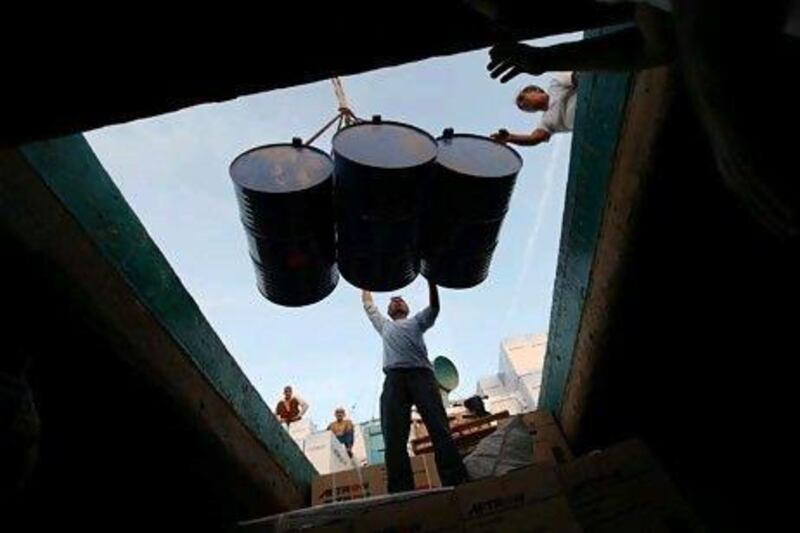A steady tightening of global sanctions aimed at pressing Iran over its nuclear programme has hit the country's trade with the UAE hard.
Financial sanctions by the United States and European Union are designed to restrict trade with Iran.
Many banks, exchange houses and other institutions have responded by sharply curtailing dealings with Iran.
As a result, life has been made harder for the thousands of UAE traders who re-export a wide variety of goods across the Gulf.
Many are struggling to obtain letters of credit or other financing to pay for shipments. Under pressure from the UAE Central Bank and the West, many banks are stopping their dealings with Iran.
In the latest development, the Society for Worldwide Interbank Financial Telecommunication (Swift), based in Belgium, last week said it was complying with an EU ban on conducting business with Iranian institutions including the country's central bank.
Swift had been a popular option for UAE traders looking to finance business.
"Any bilateral talk between the two countries is positive," said Ardelan Zamin Peyma, a brand manager at a wholesaler of toys and other goods in Deira which ships some goods to Iran.
"We hope for the best and hope things improve as the two countries have been together geographically for so long, and it gets difficult when there's a gap in relations."
The flow of goods between the two countries - much of it Iran-bound - accounts for 7 per cent of the UAE's GDP.
For Iran, the relationship is equally valuable.
The estimated US$20 billion (Dh73.46bn) of goods moving from the UAE across the Gulf accounts for about one third of Iran's imports.
The UAE has stated its commitment to comply with global sanctions.
But it has strived to ensure the continued trade of goods such as medicine and food, which are not banned.
"I would imagine the UAE wants to take a more nuanced approach as they are mindful of their commercial relationship with Iran," said Edward Bell, an economist specialising in Iran at the Economist Intelligence Unit (EIU).
But officials are also worried that the flow of goods is beginning to wane. Hamad Buamim, the director general of the Dubai Chamber of Commerce and Industry, said last month that exports from Dubai to Iran were falling "day by day". He appealed to the Government for guidelines about business dealings with Iran.
With the list of Iran's global trading partners dwindling, the country's partnership with the UAE is as important as ever. The UAE accounts for about 87 per cent of Iran's trade with the GCC.
"Iran is not in a position to cut off ties with the UAE," said Ayesha Sabavala, a Middle East analyst at the EIU.
"With its economic situation and the depreciating of the Iranian currency, it has less room for manoeuvre."
Reduced revenue from oil exports and rising inflation are making life difficult for the country's people and government.
The economy is likely this year to enter its first recession since 1993, the EIU has forecast.
twitter: Follow our breaking business news and retweet to your followers. Follow us





